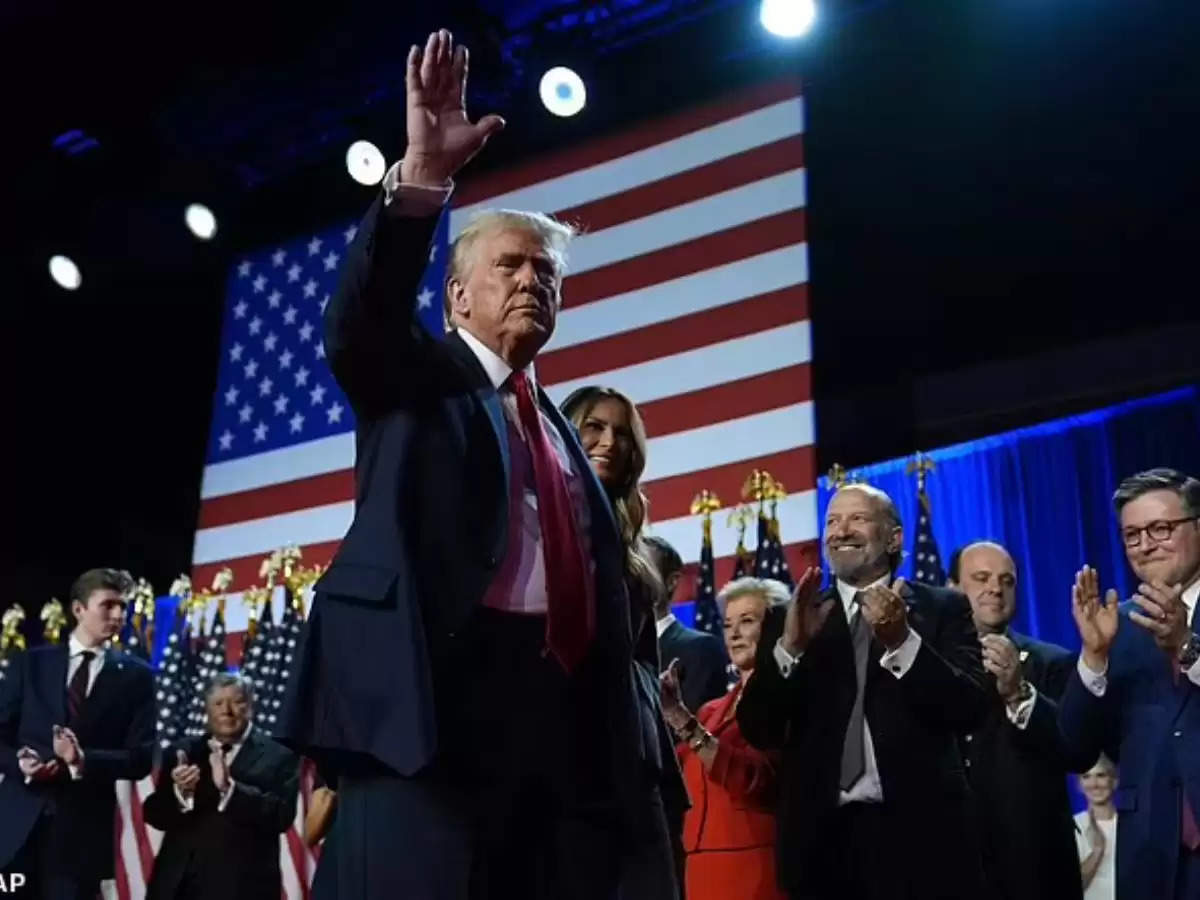Does Hollywood have the energy to oppose Trump once again?

A1 Digital India News: The unthinkable happens again — which, I suppose, makes it not so unthinkable. Kamala Harris’s slogan of hope and fear in the campaign, “We’re not going back,” is extremely wrong: like the sole survivor of a horror movie who believes she is safe, but is gunned down by the killer just before the final credits. She is shot.
Once captured, we now find ourselves helplessly returning to the same country we fled from four years ago. The question now is, does it feel like last time? What will be the national ethos for the next four years? To get an idea of the mood to come, it might help to look at film and television produced in the bad old days, when a numb half of the country — a large handful of them working in the entertainment sector — were playing ‘Oh That Strange New World’ trying to make sense of the world in which it suddenly finds itself.
But Hollywood only has four years to deal with this in the near future. Often, that process takes longer. So, we often turn to what happened before Trump’s first election and reintroduce some of that insurgent-Obama-era triumphalism as a form of resistance. Movies like Black Panther in 2018 and The Post in 2017 and TV shows like The Handmaid’s Tale in 2017 would feel more relevant if Hillary Clinton had won in 2016 — but are not specifically targeted at Trumpism.
In contrast, Mike White’s The White Lotus developed in the final months of Trump’s first term, and it certainly conveys the sense that the rich outweigh everything. But like 2017’s Get Out, the first season of The White Lotus was more concerned with the oppression and exploitation of people who could largely be called liberals. In fact, both works are not about authoritarian conservatism.
Maybe Trumpism is too big to tackle in the short term. But some aspects of our poor health first surfaced during the Trump era — perhaps most notably in the conversation around #MeToo, which rose to international prominence at the end of Trump’s first year in office. Films like Promising Young Woman, Bombshell, and The Assistant have attuned many to the fact that during the Trump years, the referendum has become about people like the president and the systems that support them.
This kind of cultural shift is likely to happen no matter who is in the Oval Office in 2017, but having someone in charge amplifies it, and gives it special relevance. Adam McKay talks about climate change — a position supported by Trump — in his 2021 satirical film Don’t Look Up, starring Meryl Streep as a mindless, vain, selfish POTUS.
She was merely a supporting character in a wider circus of paranoia about our imminent environmental destruction, destroying everyone’s decency. James Gray's investigation and grim film Time of Armageddon, a brilliant memoir of complicity, have raised the ghost of Trump, but far from the past. Likewise, this year's The Apprentice is also about the making of a young real estate mogul.
So what might happen in the next four years that Trump will find different from his first term in nearly half a decade? It's certainly amazing that Trump won – but today, the panic is more tinged with despair than it was in 2016. Former adversaries may be tired not just of the pain of the past, but also of COVID-19, the ongoing erosion of civil rights, a growing culture of hostility towards women, people of colour, gay people, immigrants.
That fatigue had once given way to a slowly growing sense, now almost confirmed, that nothing could be done to stop the forces of Trumpism – that there was something about this country that had indeed irrevocably changed most, and 'one of us'. We are heading for a harsher and worse time when four years of decline can no longer be ignored. And what is the point of art fighting such a thing alone?
In a few years, I expect to see a deeply American performance, darker than anything released in 2016-2020, in keeping with the appropriately disturbing, cynical work of the post-9/11 years. Much of the art of that time was geared towards war, which was brutally weakened by the confused stagnation of the Obama years.
Perhaps such darkness and gloom is a direct response to Trump; in the end, it doesn’t work as a limitation or as a metaphor. Then again, maybe nothing will work. In such cases, the only thing to do is keep looking into the hole and wallowing in it.
